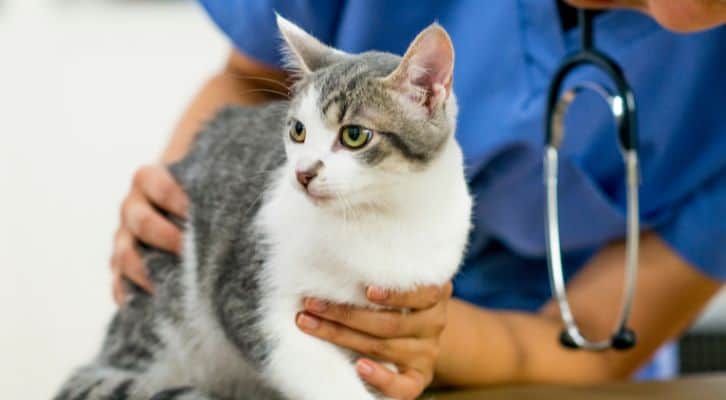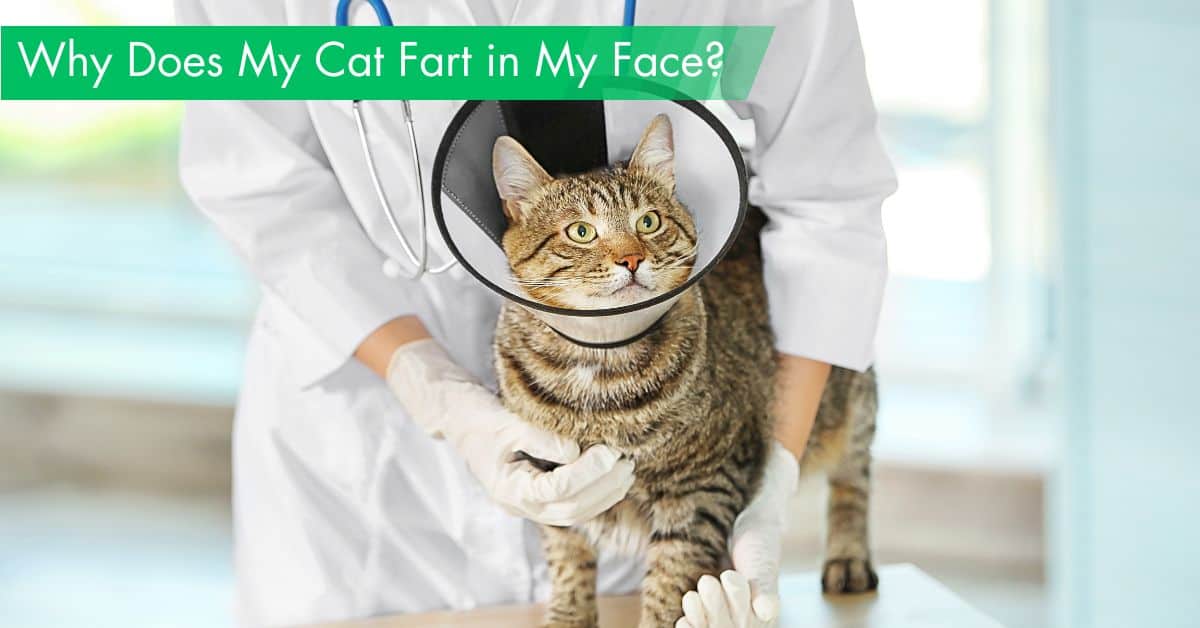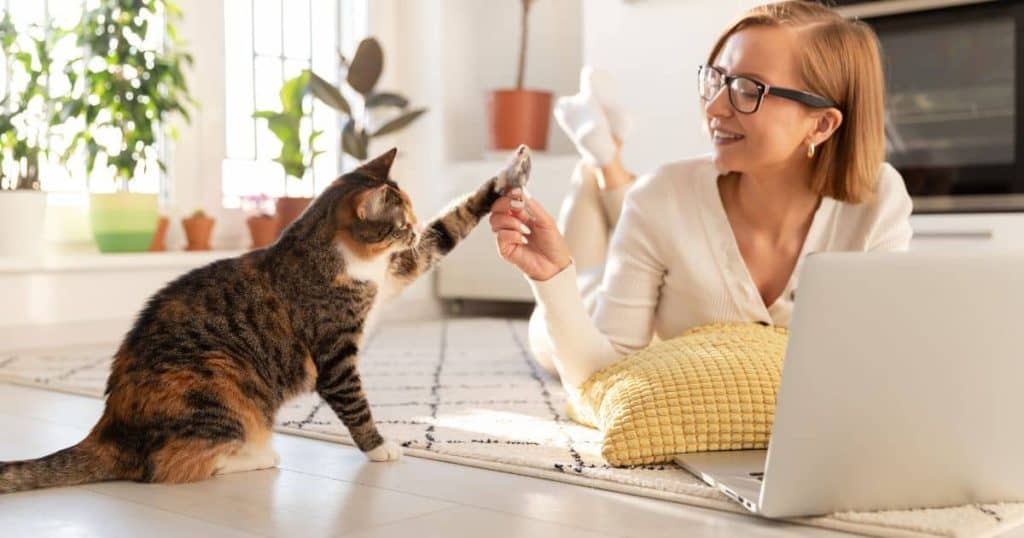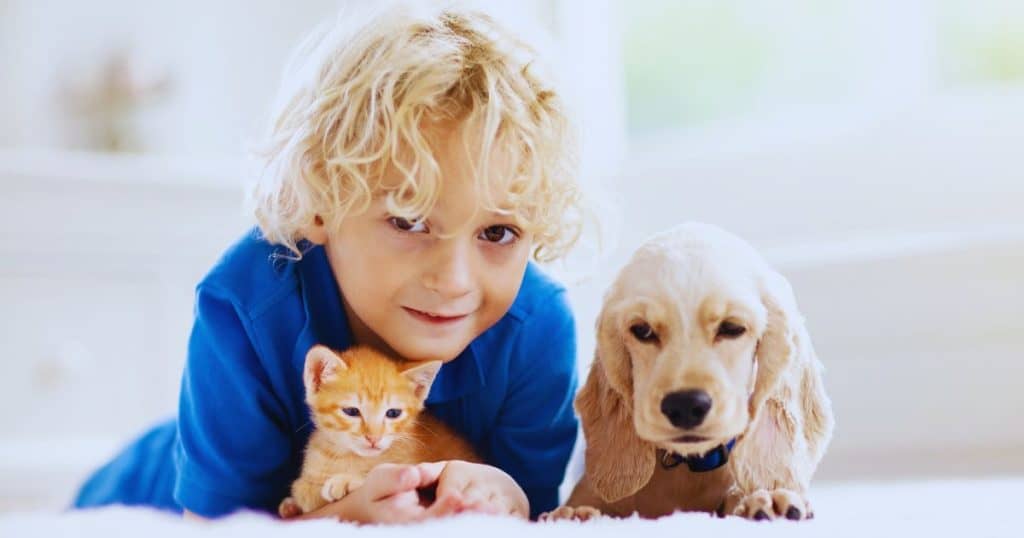A cat is a pet animal that is loved by all people. These animals are seen in most homes for their charming and quirky behavior. But many cat owners wonder Why Does My Cat Fart in My Face? Although it may seem surprising and perhaps a little embarrassing. There are several reasons why cats exhibit this behavior. In this article, we’ll explore ten possible explanations for why your cat may occasionally pass Fart in your mouth.
Why Does My Cat Fart in My Face: 10 reason
- Marking Territory
- Comfort
- Dietary Issues
- Swallowed Air
- Intestinal Parasites
- Inflammatory Bowel Disease (IBD)
- Food Intolerances or Allergies
- Stress and Anxiety
- Lack of Exercise
- Normal Digestive Process
Marking Territory and Comfort
Cats have scent glands in various parts of their bodies, including the anal area. When they release gas, they might be using it as a means of marking their territory. By doing so, they leave behind their scent, which they consider a form of communication.
Your cat might feel comfortable and secure around you, which can result in more relaxed behavior, including the occasional emission of gas. It could be a sign that your cat feels completely at ease and trusts you enough to display such behavior.
Dietary Issues and Swallowed Air
Diet plays a significant role in a cat’s digestive health. Just like humans, cats can experience gas and bloating due to certain food items. Introducing new foods, sudden diet changes, or a diet lacking essential nutrients can lead to an upset stomach and increased flatulence.
Cats, especially those who eat their meals quickly or are anxious, may swallow air while eating or drinking. This can result in excessive gas buildup, leading to farting. Slowing down mealtime and using slow-feeder bowls can help alleviate this issue.
Intestinal Parasites and Inflammatory Bowel Disease
In some cases, flatulence can be a symptom of intestinal parasites such as worms. If your cat’s gas is accompanied by other signs like weight loss, diarrhea, or a change in appetite, it’s important to consult a veterinarian for a proper diagnosis and treatment.
IBD is a chronic condition that affects a cat’s digestive tract, leading to inflammation and digestive disturbances. Flatulence can be one of the symptoms of this condition. If you notice consistent and excessive gas along with other signs like vomiting or diarrhea, it’s crucial to seek veterinary care.
Food Intolerances and Stress and Anxiety
Cats, like humans, can develop food intolerances or allergies. Certain ingredients, such as lactose or grains, may not agree with their digestive system, causing excessive gas. Working with your veterinarian to identify and eliminate potential allergens from their diet can help alleviate this issue.
Cats are sensitive creatures, and stress or anxiety can affect their gastrointestinal health. When they experience heightened emotions, their digestive system can become imbalanced, resulting in increased flatulence. Creating a calm and secure environment for your cat may help reduce stress-related gas.
Lack of Exercise and Normal Digestive Process
Insufficient physical activity can lead to poor digestion and slower bowel movements. If your cat is not getting enough exercise, it could contribute to the buildup of gas in their system. Encouraging playtime and providing opportunities for regular exercise can help regulate their digestive processes.

FAQs:
Final Words
The occasional fart is a normal part of a cat’s digestive process. Just like humans, cats have natural bodily functions. So cats also include farting. So there are no accompanying signs of health problems with cat feet. To answer this question, Why Does My Cat Fart in My Face, we have mentioned 10 reasons that will help you understand.


